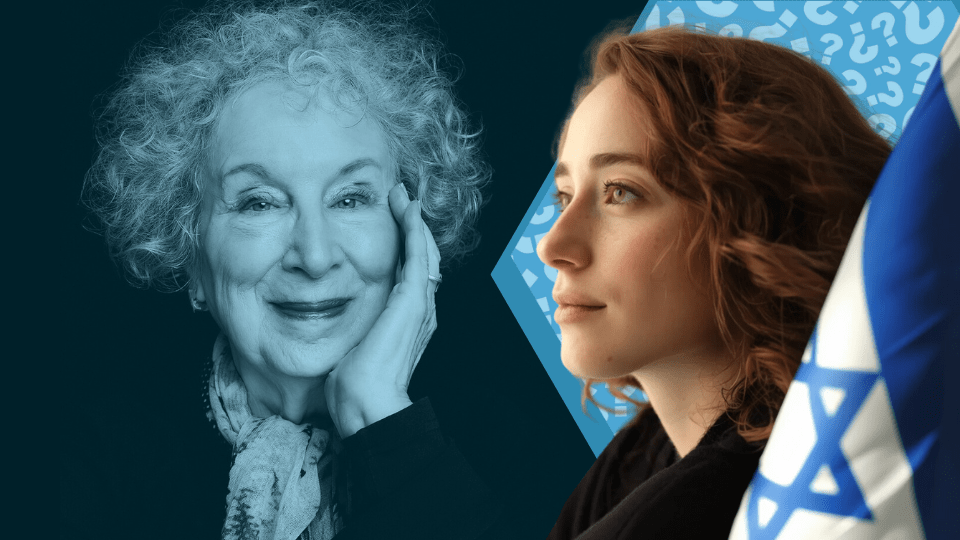Key Takeaways
Has Margaret Atwood Engaged with Israel Directly?
Margaret Atwood has engaged with Israel directly through her visit to accept the Dan David Prize for Literature in 2010. This event marked a significant moment in her relationship with Israel, as it sparked both praise and criticism from various quarters.
- Atwood's visit to Israel was notable for her acceptance of the prize, which she shared with Amitav Ghosh. This decision was seen as a choice not to support the BDS movement, a stance that was criticized by some activists.
- There is no evidence of ongoing personal ties or collaborations with Israeli communities beyond this event. However, her visit and subsequent reflections on the situation in Israel indicate an interest in understanding the complexities of the region.
Has Margaret Atwood Expressed Opinions on Israel?
Margaret Atwood has expressed her thoughts on Israel through various public statements and writings. Following her visit to Israel, she reflected on the challenges faced by the country and the broader implications for democracy and human rights.
- Atwood has noted concerns about Israel's democratic values and human rights record, particularly in how it treats Palestinian communities. Her comments have highlighted the need for reconciliation and an open society.
- She participated in discussions about the Israeli-Palestinian conflict, using her platform to encourage dialogue and understanding. Atwood's reflections often emphasize the importance of addressing the core issues affecting both Israelis and Palestinians.
What Is Margaret Atwood’s Stance on Politics and Israel?
Margaret Atwood's political perspective is generally aligned with progressive values, emphasizing social justice and human rights. Her stance on Israel reflects these values, as she critiques aspects of Israeli policy while also engaging with the country.
- Atwood's overall political alignment is progressive, and she has been vocal about issues related to social justice and human rights globally. Her views on Israel are nuanced, reflecting both criticism and a desire for dialogue.
-
- Margaret Atwood has made public statements criticizing certain Israeli policies, particularly those affecting Palestinian rights and freedoms.
- She has not explicitly endorsed the BDS movement but has encouraged dialogue and understanding between Israelis and Palestinians.
Community Engagement and Advocacy
Margaret Atwood is known for her advocacy on various social and environmental issues. While her engagement with Israel has been more limited, her actions and statements have contributed to broader discussions about human rights and justice.
- Atwood's advocacy efforts have primarily focused on global issues such as feminism, environmentalism, and human rights. Her engagement with Israel has been more about encouraging dialogue and understanding rather than specific charitable or advocacy work.
- There are no notable collaborative efforts with Israeli organizations beyond her participation in the Dan David Prize event. However, her reflections on Israel have contributed to international discussions about the region.
Cultural Impact Related to Israel
Margaret Atwood's cultural impact extends globally, and her influence on perceptions of Israel is more indirect. Her writings and public statements have encouraged critical thinking about complex social issues, including those related to Israel.
- Atwood's cultural contributions have resonated in Israel through her literary works, which often explore themes of social justice and human rights. While not specifically focused on Israel, these themes are relevant to the broader discussions about the region.
- Her influence aligns with local Israeli cultural initiatives that promote dialogue and understanding. Atwood's emphasis on human rights and democratic values resonates with those in Israel advocating for similar principles.
Conclusion: Margaret Atwood’s Complex Relationship with Israel
Margaret Atwood's relationship with Israel is complex and nuanced. While she has engaged with Israel through her acceptance of the Dan David Prize, her views on the country reflect both criticism and a desire for dialogue. Atwood's progressive values emphasize human rights and social justice, which she applies to her reflections on Israel. The question of whether she supports Israel is multifaceted; she does not endorse the BDS movement but critiques certain Israeli policies. Overall, Atwood's engagement with Israel encourages critical thinking and dialogue about the region's challenges.













































































































